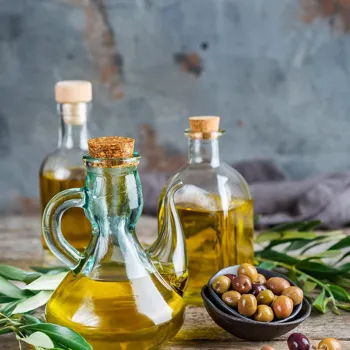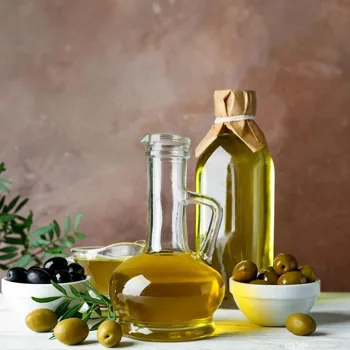Unravel the mystery of choosing healthy cooking oils in your kitchen! Dive in to discover the best options for your well-being
In the Indian kitchen, oil is like the main character in a movie. It’s essential
for almost every dish, from the simple tadka to the most elaborate biryani. But with so many different types of cooking oils available in the market, choosing the right one can be a bit confusing, isn't it?

Which oil is actually good for your health? Which one is best for frying? Don't worry, we're here to help you navigate the world of cooking oils and make informed choices for a healthier you. Getting the right cooking oil can make a big difference to your health and the taste of your food.
Not all fats are bad; our bodies need healthy fats in moderation
First, let's understand that not all fats are bad. In fact, our bodies need some fat for energy, to absorb vitamins, and to protect our organs. The key is to choose healthy fats and use them in moderation.
Healthy fats: choose mono & polyunsaturated, limit saturated & trans fats like palm oil, coconut oil, ghee
For instance, Monounsaturated fats, are good. Think olive oil, groundnut oil, and rice bran oil. Polyunsaturated fats are another healthy choice. These include sunflower oil, soybean oil, and corn oil.

The ones you should be careful about are saturated and trans fats, as these can raise your cholesterol levels and increase your risk of heart disease. Palm oil, coconut oil, and ghee contain significant amounts of saturated fat, so it's best to use them sparingly.
Oil smoke points crucial for cooking; choose wisely
Now, let's talk about 'smoke point'. This is the temperature at which an oil starts to break down and release harmful fumes. Using an oil beyond its smoke point can not only ruin the flavor of your food but also create unhealthy compounds.

For deep frying, you need oils with high smoke points, like refined sunflower oil, groundnut oil, or rice bran oil. For sautéing or light frying, oils with medium smoke points, such as olive oil or coconut oil, can be used.
For salad dressings or adding flavour after cooking, oils with low smoke points, like flaxseed oil or walnut oil, are ideal. Remember, always store your oils in a cool, dark place to prevent them from going rancid.
Choosing between refined and cold-pressed oils depends on needs and preferences
One important consideration is the processing method. Refined oils are processed to remove impurities and increase their smoke point, but this process can also remove some of the nutrients.

Cold-pressed oils, on the other hand, are extracted without heat, preserving their natural flavor, aroma, and nutritional value. However, they usually have lower smoke points. Choosing between refined and cold-pressed oils depends on your specific needs and preferences.
If you're looking for a neutral-tasting oil with a high smoke point for frying, a refined oil might be a good choice. If you want an oil with a richer flavor and more nutrients for sautéing or dressings, a cold-pressed oil might be a better option.
Blend different oils for healthier cooking, vary monthly, be moderate
For everyday cooking, a blend of different oils can be a good idea. For instance, you can use groundnut oil for deep frying and olive oil for sautéing. This way, you get the benefits of different types of fats and ensure you're not overconsuming any single type of oil.

Another option is to alternate between different oils every month or two. This helps you diversify your nutrient intake and avoid any potential build-up of harmful compounds. Remember, moderation is key.
Even healthy oils should be used in limited quantities to maintain a balanced diet and overall good health.
Experiment with oils for flavor; consider smoke points and health
Considering adding flavor to your dishes? Experiment with different oils and don't be afraid to try new things! Mustard oil, with its pungent flavor, is great for pickles and certain traditional Indian dishes. Sesame oil adds a nutty flavour to Asian-inspired recipes.
Ghee, with its rich, buttery taste, is perfect for sweets and special occasions. Just be mindful of their smoke points and nutritional profiles when choosing an oil for a particular dish. And most importantly, listen to your body.
If you experience any digestive issues or other health problems after using a particular oil, it may not be the right choice for you.
Choose cooking oils wisely for flavor and health
So, the next time you're standing in the grocery store aisle, faced with a wall of cooking oils, remember these tips. Consider your cooking needs, smoke point, processing method, and flavor preferences. Read the labels carefully and choose oils that are made from high-quality ingredients.
And most importantly, use oils in moderation as part of a balanced and healthy diet. By making informed choices about cooking oils, you can enhance the flavor of your food and support your overall well-being. Remember, a little oil goes a long way in creating delicious and healthy meals!
AI Generated Content. Glance/InMobi shall have no liability for the content













